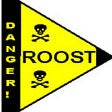
Paper and mesh filters take a fundamentally different approach to filtering. Mesh filters filter down to a certain size, and for practical purposes, no smaller than that. They do, however, only require a single pass to filter to that level. They work by simply having a very strictly controlled mesh size, through which a spherical object larger than that size cannot pass. They are rated in "absolute" terms, as with the Scotts (35μm "absolute"). This rating tells you that nothing larger than 35μm (35 microns) will pass through it. (1 micron, or micrometer more correctly, is 1/1,000,000 of a meter, or 0.001 mm, or 0.000039")
Mesh filters are able to achieve this level of filtration with remarkably low resistance to fluid flow as well, which in the case of the Scotts means that the bypass valve will not open on cold starts, and there will be no appreciable pressure loss across the filter.

Scotts Performance Stainless Steel Oil Filter
"Paper" filters are different. They can stop even finer debris than mesh filters, but they also allow some larger debris to pass. They filter somewhat the same way a thick shrub catches objects thrown into it. Most tennis balls get stuck, but not all. An occasional golf ball gets caught, but an occasional soccer ball passes through to balance that out.

HiFlo Filtro Paper Oil Filter
The random arrangement and density of the fibers in the element create odd and irregular gaps through which debris can pass. This creates little crotches of sorts that enable the filter to catch extremely small debris, but also creates gaps that allow it to pass ridiculously large material at other times. The paper element media is also three dimensional to a degree, whereas mesh is essentially two dimensional; if something passes through one opening in the mesh, it's through, which isn't necessarily the case with fiber media.
Fiber, or paper, filters can stop debris as fine as 20 microns, or even less. But, they won't stop it all on the first pass. Worse yet, they won't stop all of the debris even as large as 90 microns or more on the first pass, and some particles occasionally come free of the filter to re-enter the oil stream. They are considered multi-pass filters, which carries the expectation that the same debris will pass through the system multiple times before being intercepted. They will be given "Beta" ratings like "80/25", which tells you that it will stop 80% of all 25 micron particles on the first pass. However, they will rarely publish the fact that they may very well also test at 85/35 or 85/40, and certainly will not mention that they tested at only 95/60 (95% of 60 micron debris).
Additionally, paper filters resist oil flow, particularly when cold, a great deal more than does mesh, and cold starts often cause a paper filter to bypass. In the Scotts filter, a one inch square of the mesh media they use will flow 1.9 gallons of cold 90 weight gear oil per minute at only 1 psi pump pressure (70 degrees F). The YZ filter contains about 15 sq/in of mesh, which means that the media itself has the ability to flow over 28 GPM of cold 90 weight at 1 psi. The pump at the corner gas station is less than half that fast on a good day. That figure is also far beyond the delivery capabilities of the engine oil pump in any case. That basically means that unless you run half a shop rag through your engine, the Scotts filter will never bypass under any conceivable circumstance, and will filter at full capacity regardless of temperature. This is often not the case with "paper" filters, which commonly open the bypass valve during warmup operation.
So, it isn't a black and white, indisputable, one's better than the other kind of choice, but in my opinion, the 35 micron stainless mesh is the way to go, and Scotts makes the best example of that type of filter. Let me also point out that there is a huge difference between the medical grade stainless steel mesh used in Scotts filters and the OEM brass screen filters used in YZF's up until '03. The brass filters will filter no finer than 70-80 microns absolute, which is not nearly acceptable, IMO.
Paper filters are vastly preferred by race teams because stainless filters do not capture water, but paper filters do catch water. Water is the number one engine lube problem and always condenses into the oil as it cools down and from storage. The issues with water vapor condensing are much harder on an engine, than a short filter bypass in very cold weather start up conditions. Paper filters should be changed at every oil change, not because of solid debris, but because of the collected water that they absorb.
What's been your experience using either of these types of filters? Are you firmly in one camp or another and if so, why? Does your experience conflict with anything I've written? Please do hit me up in the comments section below!
-
 11
11
-
 6
6









Recommended Comments